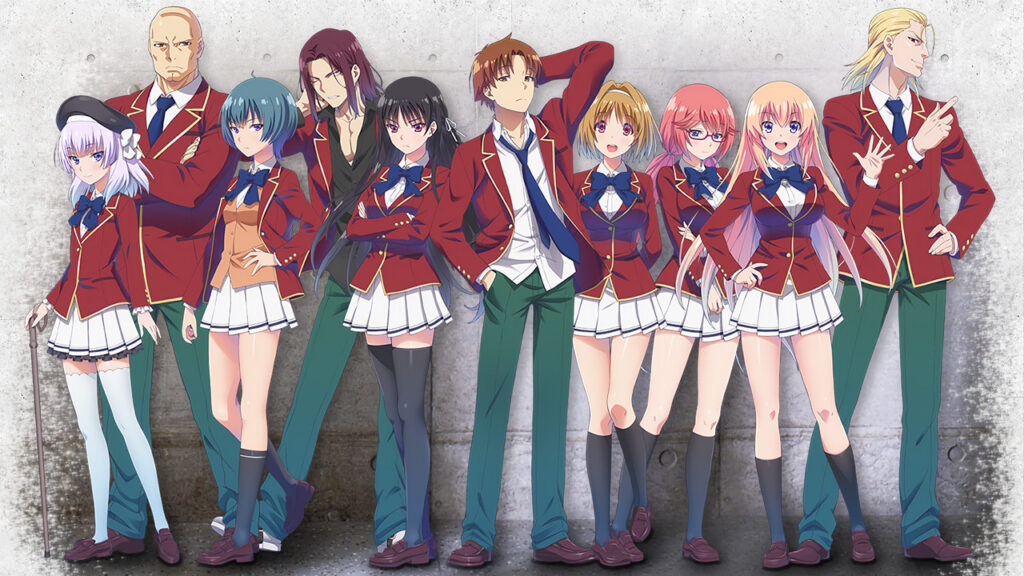Books: Classroom of the Elite (Light Novels 1-5)
Ayanokouji is a first-year student at a government-run high school in Tokyo. His strangely deadpan expression leads others to believe he is morose, stupid, or maybe just sleepy. But it actually conceals a devious mind.
Students at this school are divided into four classrooms, A through D. Ayanokouji is in Class D, known colloquially as “defective.” That’s because the school has ostensibly assigned students based on their abilities. Class A would be the best students, and D… Well, one wonders why they even were chosen to go to such a prestigious school.
Except, of course, that’s not exactly the way the classes have been divided. Or maybe it’s more accurate to say that strengths and weaknesses come in wide varieties.

Bottom line: this school then pits the four classes against one another by making them vie for “points.” Earn enough points to pass another class, and your class can climb the ranks to become Class A. To do that, though, Ayanokouji will have to use his master manipulation skills to get his disparate classmates to work together—all while avoiding bringing attention to himself as he has a past he’d rather not bring to light…
I’ll admit that I saw the anime first, which I enjoyed very much. The twelve episodes encompass the first three of these light novels. Right now only five of the novels (plus one interim set of short stories) are available in English, with a sixth coming in October and and seventh in January. (There are 16 volumes in Japanese, but my language skills aren’t quite there yet.) I’ve heard that a second season of the anime is supposed to be released later this year, but I don’t know how accurate that is.
Overall, I’ve enjoyed these characters and this unique setting/situation. While some of the characters are somewhat one note, Ayanokouji is deliciously layered, and it’s fun and interesting to read as those layers are peeled away one by one. Likewise, a number of other characters show myriad facets to keep readers guessing. There are a few editing mistakes in the translation, but it may just be that I notice those because of my writing and editing background. And sometimes it can be tricky to figure out who is speaking because the dialogue tags and/or formatting make it strange. Still, it’s not distracting enough to stop me from reading and enjoying the books. I would simply warn people about it. Also, quite a bit of fan service in the form of horny teenage boys, so beware there.
There is a manga, too, for those who feel like they’d rather read that. Having already watched the anime, though, I don’t feel any need to read the manga. The books give a bit more depth and character development, and they are slightly different from the anime as well. Not so much as to make a huge difference to the overall plot (so far), but noticeably different in some ways. I don’t know if the manga follows the books or the anime.
tl;dr: I really enjoy these light novels as well as the anime. I would recommend them as quick reads and to writer friends who want an example of multifaceted characters and antiheroes.